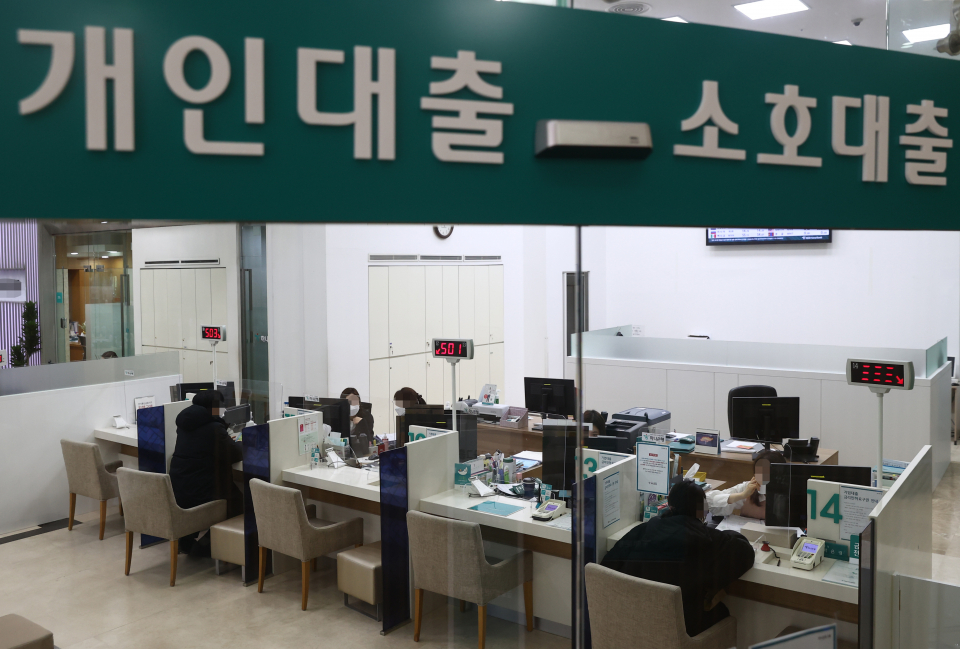 |
This file photo, taken on Jan. 5, 2021, shows customers consulting about loan products at a bank in Seoul. (Yonhap) |
South Korean banks' household loans increased by the most last year, fueled by demand for home-backed lending and overdrafts for stock and property investments, central bank data showed Thursday.
Outstanding bank loans to local households came to 988.8 trillion won ($896 billion) as of end-December, up 100.5 trillion won from the previous year, according to the data from the Bank of Korea (BOK).
It marked the largest on-year gain since 2004, when the central bank began compiling related data.
In December, household loans grew 6.6 trillion won on-month, slowing from a 13.7 trillion won rise in November.
The sharp yearly gain in household loans was mainly attributable to a sustained rise in mortgage loans and loans taken out to cover property-related costs and stock investment, according to the BOK.
Banks' mortgage loans grew 68.3 trillion won on-year to 721.9 trillion won as of end-December. It marked the largest on-year gain since 2015, when home-backed lending rose 70.3 trillion won.
South Korea has unveiled a set of measures to cool the overheated housing market but has failed to put a lid on home prices.
Non-mortgage loans amounted to 266 trillion won as of end-December, up 32.4 trillion won from a year earlier. It represented the largest on-year gain on record.
Unsecured loans accounted for the bulk of banks' non-mortgage lending.
Amid a rally in the stock market, households rushed to borrow money to subscribe to initial public offerings (IPOs) and opened accounts for credit loans.
The financial regulator tightened regulations on unsecured loans late last year, as excessive demand for credit loans is feared to hurt households' debt-serving capacity and banks' financial soundness.
Meanwhile, banks' corporate loans also grew by the most last year due largely to the government's financial support meant to help them ease the pandemic-caused liquidity crunch.
Outstanding corporate loans totaled 976.4 trillion won at the end of December, up 107.4 trillion won from a year earlier. It marked the largest on-year rise since 2009, when the central bank began compiling related data.
Banks' loans to large firms rose 19.5 trillion won on-year to 171.8 trillion won, while their lending to smaller companies increased 87.9 trillion won to 804.6 trillion won. (Yonhap)








